
With the announcement of Jodie Whittaker as the 13th Doctor Who, most of the conversation has been about gender. But, The Doctor, is not so much a man or a woman but a force of cosmic nature. What is more important is what makes up the character and psychology of one of science fiction’s greatest creations. So let us look back at what each of the previous incarnations of The Doctor lent to the canon of the Timelord from Gallifrey.

William Hartnell: The Heart and the Temper
William Hartnell was the founder of the role and brought with it a level of intensity. Hartnell gave us a Doctor who would not suffer fools lightly and would often wear a scowl that was second to none. It does not take a huge leap to imagine that this incarnation would be the one who lost his patience with the Time Lords of Gallifrey, steal a Tardis, and head out to the great unknown. But with all of his rancor William Hartnell also possessed a great heart. He was not only the grandfather of his companion Susan but a grandfather to us all. Hartnell, when not scowling, gave off an air of paternal protection that was heart warming, especially in contrast to his other personality trait.
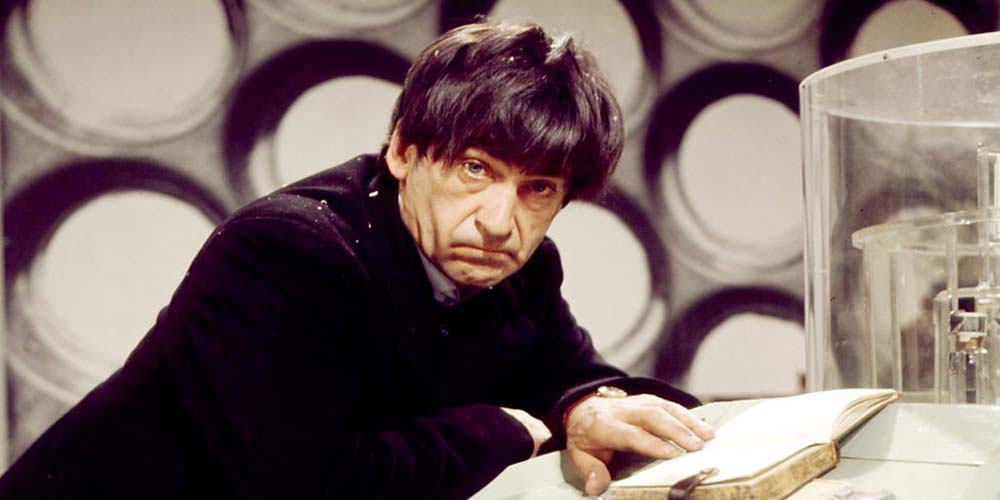
Patrick Troughton: Whimsy
Patrick Troughton had the burden of being the first regeneration of The Doctor. It may have been a hard sell to convince fans in the 1960’s what exactly was happening to their favorite TV character and not lose your entire audience. Luckily the BBC chose the perfect man to take on the role. Patrick Troughton created the template for all other Doctors to follow. His Doctor brought the whimsical aspect to the role that made fans adore the character and Troughton himself. He showed us that the Doctor can be quite serious and completely facetious all in the same sentence. Troughton’s Doctor was often referred to as a “Galactic Hobo” which may still be the best way to explain Doctor Who to anyone who has not seen it. Many of the people who portrayed the Doctor after Troughton (Especially Matt Smith) have cited his incarnation as the inspiration for their own.

Jon Pertwee: The Rogue
Jon Pertwee took the role in an absolute 180-degree direction from Patrick Troughton. Even though Pertwee was on in years he decided to play the character as an intergalactic geriatric James Bond. With his coifed hair and foppish clothes, Pertwee gave his Doctor a strong sense of flair. He was also the first Doctor not to shy away from a little fisticuffs. Pertwee would often judo chop his way through enemies. The one restriction his Doctor had was that the Time Lords decided to disable his TARDIS and keep him earth bound for the majority of his time. Because of this, his Doctor spent a disproportionate amount of time working with U.N.I.T. He also had a taste for cars and gadgets that had not been seen before or since.
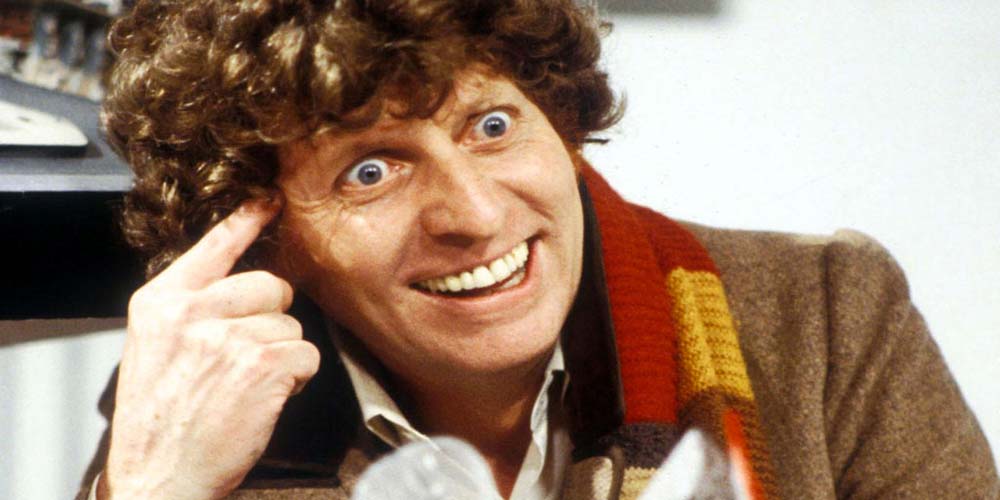
Tom Baker: The Total Package
It may be cliche to say that Tom Baker is the greatest Doctor of all time (Yes, The GDOAT) but allow me to echo the cliche. Tom Baker is the Greatest Doctor of all time. He is the perfect blend of every Doctor before him and since. If you want to see Doctor Who at its absolute peak, I recommend season 17, when Douglas Adams was script supervisor. Baker and Adams were a dream team of science fiction. Baker absolutely immersed himself into the role. So much so that for years when you asked people if they had seen Doctor Who they would reply; “The show with that guy in the scarf?” That is quite a feat when you are the 4th out of 12 people who have played a role. He could be dead serious and edgy one moment and a slapstick clown the next. Baker’s Doctor could turn on a dime.

Peter Davison: The Dad
Following a legend is no easy task and that is precisely what Peter Davison did. Tom Baker had been the Doctor longer than anyone (7 Years) and was widely considered the best. But Davison who was well known as Doctor Tristen Farnon in the British Drama All Creatures Great and Small did quite the admirable job. Davison was at the time the youngest of all the incarnations but, interestingly enough, served as a father figure to his companions Adric, Nyssa, Tegan, and Turlough and, lastly, Peri. Davison’s Doctor was also the first to experience the death of a companion (Adric). Though youthful, he always had an air of deep wisdom and intellect. After Tom Baker, the producer, the famous (Or Infamous) John Nathan Turner, wanted a more serious Doctor and Davison was that to a T.
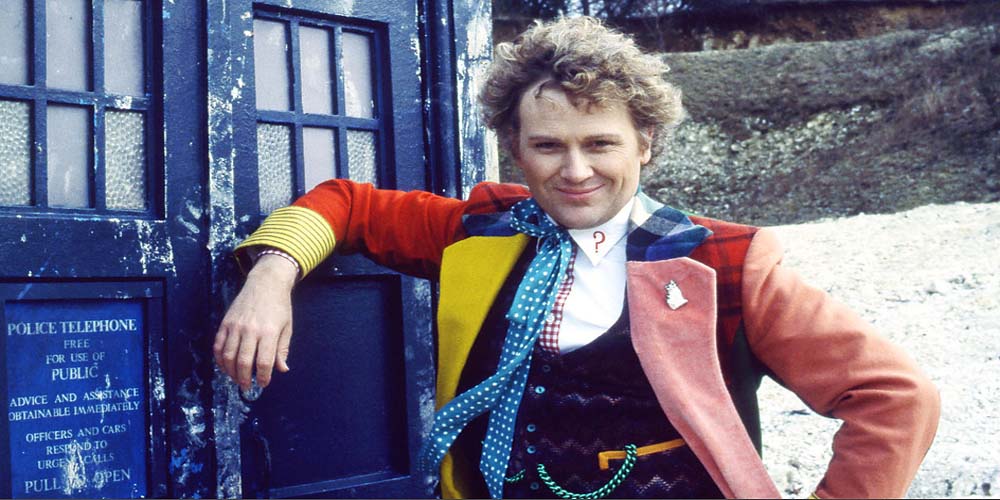
Colin Baker: The Unlucky One
Colin Baker was the first of two Doctors who had appeared in the show previously (the second being Peter Capaldi). Baker was Maxil, a guard in Gallifrey. At the time, he was known for his role of Paul Merroney in The Brothers, a BBC Drama. Baker had high hopes for playing The Doctor but, sadly, those hopes were dashed almost immediately. Initially, Baker wanted to have a costume much like that worn by Christopher Eccleston, leather, and dark, but producer John Nathan Turner had something completely different in mind: a totally tasteless costume. Baker, sadly, could never out-act his wardrobe and the audiences could never look past it either. Though he looked like a psychedelic dream, his choice of personality could not have been more of a contrast. Baker wanted to return to the quick angered stylings of William Hartnell. This also was not popular with his audience. But Baker’s greatest obstacle was the BBC itself. Michael Grade, who was the head of the BBC at the time and dating Baker’s ex-wife Liza Goddard, hated the show and was no fan of Baker’s, so after 11 stories, Grade said that he would only renew the show if the role was re-cast. So, alas, Baker was never given time to flesh out his portrayal.

Sylvester McCoy: The Crazy Uncle
Now that we have had a grandfather and father, why not an uncle? Sylvester McCoy was brought in as the 7th Doctor Who in a turbulent time. So turbulent that his predecessor, Colin Baker, was not around to do a proper regeneration scene. McCoy’s Doctor was initially very clownish in his disposition, bringing back levity to the role. As time went on, his Doctor was given a darker edge but he remained both witty and fascinating until the BBC finally pulled the plug on the original series.
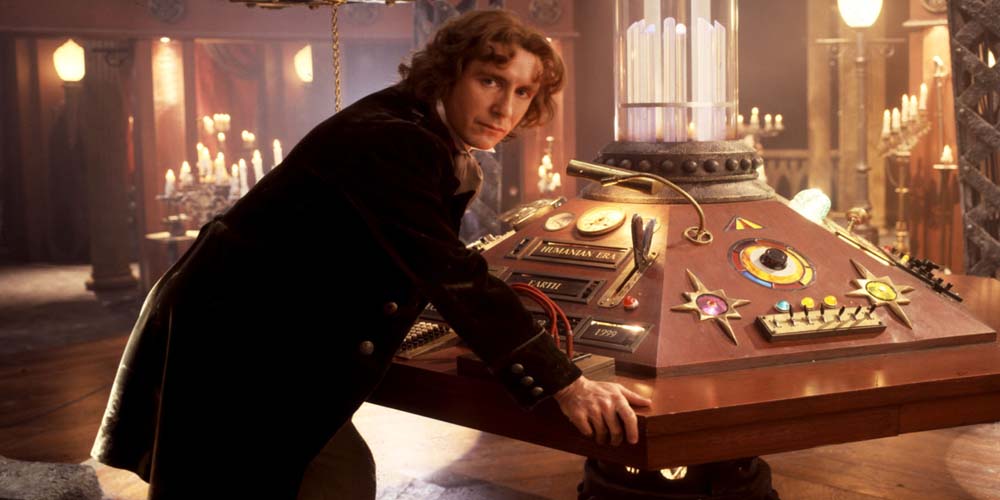
Paul McGann: The Adventurer?
After years in oblivion, FOX television took a stab at bringing The Doctor to American screens with what became a one-off television movie. Paul McGann, previously known for the British film Withnail and I, became the 8th incarnation of The Doctor. McGann has almost too small a sample size to get a sense of what his Doctor could be but based on his costume, which was a wild west costume he found from a Halloween party, we can assume that he would have been a wild west adventurer. I have to say that with only two stories years apart, and many audio plays, Mcgann won me over and I am sad that he was not allowed to do much more for the lore.

Christopher Eccleston: The Hard One
When the BBC decided to bring back Doctor Who, they went into a completely new direction in casting by hiring Christopher Eccleston. Though Eccleston had a rich career before taking the role, he was still a very unconventional choice. Unlike the predecessors, Eccleston had a very hard edge to his incarnation. He was probably the first Doctor that would punch the lights out of Davros or The Master (But not Missy, that would be wrong). With his leather jacket and severe looks, he brought an edge to the character that had never been seen before and which seemed appropriate for the re-boot of the franchise.
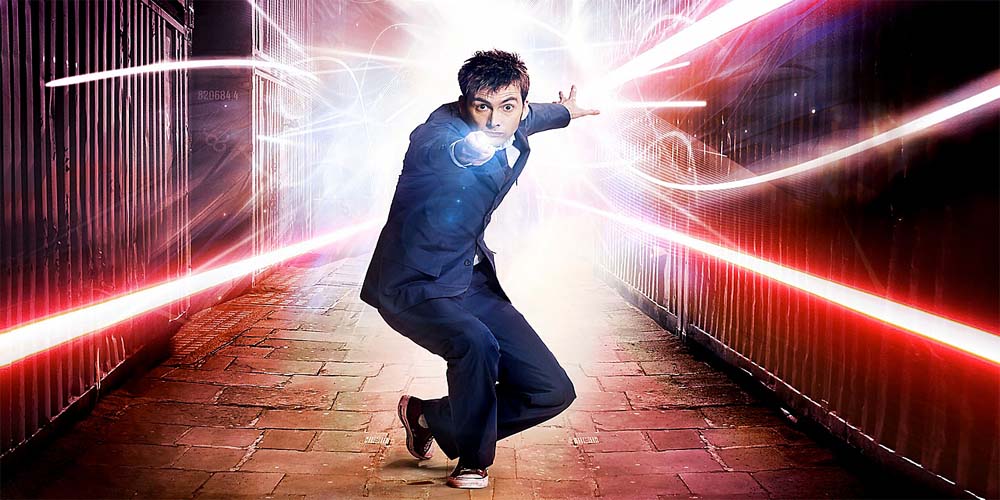
David Tennant: The Happy Heartthrob
After Eccleston decided to leave Doctor Who after only one season, Russell T. Davies decided to bring in Casanova star David Tennant to take over the role. The choice of hiring the Casonova star would seem a bit ironic, as Tennant could be considered the first Heartthrob Doctor. Will his massive smile and infectious glee, Tennant won over the ladies and gentlemen alike. Tennant also brought some of the whimsy of Patrick Troughton back. His relationship with companion Rose Tyler was the first time The Doctor had a fully fleshed out love affair on the show. So much so that a clone of himself was wed to her in one story.

Matt Smith: Back to the Future
Matt Smith was a relative unknown when he was introduced as the 11th Doctor. But being an unknown quantity may have helped lower expectations for him. Coming after the enormously popular David Tennant was no easy task. Matt Smith looked at his prior incarnations and was able to create a melange of attributes to create his own unique take on The Doctor. But the one that seems to bubble to the top is that of Patrick Troughton. More than just the Bow-Tie, Smith had a great deal of whimsy in his portrayal and was able to show great depth and wisdom, especially for the youngest person ever to tackle the role.

Peter Capaldi: The Rockstar Professor
Peter Capaldi was widely admired and loved before his selection as the 12th Doctor. As Malcolm Tucker in the hit show, The Thick of It, and having previously appeared in the David Tennant Doctor Who story, The Fires of Pompei, Capaldi was a well-known quantity to BBC viewers. Capaldi, a former singer and guitarist, decided to bring a bit of his own past and personality to the role and often times wore Ray-Bans and played guitar during his tenure. Though many feel (I being one of them) that he was overshadowed by his companion, Clara Osbourne, he was able to communicate a gentle, yet strong and worldly, adaptation.
The Others
Yes, I know Peter Cushing and John Hurt also played The Doctor but I feel their tenure too short and adaptations too limited. I love both of these actors and wished they could have had seasons of work behind them.

Jodie Whitaker:?
Which brings us to Jodie Whitaker. The goal of this article is to prove one sold thesis: Doctor Who is about change and adaptation. Jodi Whitaker’s gender is not a shortcoming; it is an evolution. Doctor Who has had Grandfatherly types (Hartnell), Fatherly types, (Davison) and even a crazy uncle, (McCoy), so why not a mother or sister or crazy aunt? Why limit ourselves to even a binary choice? The reason I have been watching this show for 40 years is that, at its best, it is unpredictable. We need to worry less about Jodie Whitaker having an XX chromosomes or an XY and get excited about the possibility of change. What is the most exciting thing about Doctor Who is the thought that you can live a whole life and then get a fresh chance with a fresh face to be different. Let us focus on that.



Interesting, though the third Doctor as a rogue? Working with a military organization and scientists seems to cut against that, as well as the character’s general disposition. He seemed to be more of a cavalier, or to use a more accessible term, a knight if you will.
Pretty good intro piece, but marred here and there:
“Even though Pertwee was on in years he decided to play the character as an intergalactic geriatric James Bond.” Geriatric?? What? Pertwee was 50 when he took over from Troughton. That’s hardly “on in years” or “geriatric.” Hartnell and Capaldi were both 55 when they started, but you’re not calling them elderly. (Though four years ago, there was a lot of nonsense about Capaldi being “too old to run,” which was insane—as he’s more than proven.) This notion that if you have white hair you must be 80 and are therefore “elderly” really needs to die.
Also, Adric wasn’t the first companion to die. Katarina, from “The Myth Makers,” was one of the First Doctor’s companions, if only briefly, and was the first companion who died on the Doctor’s watch. He also lost Sara Kingdom during the 12-episode “The Daleks Master Plan.” Speaking of companions, Clara’s family name is Oswald, not Osbourne.
Finally, Peter Cushing played the Doctor in feature films that aren’t part of DW series canon, and therefore he’s not an “other Doctor” at all. He stands alone spinoff/alternate universe character, though both his films were based on the TV series. Two notable differences from the series: he’s an eccentric inventor and nothing more, and “Who” is most definitely his Doctor’s last name, and is used when other characters address him.